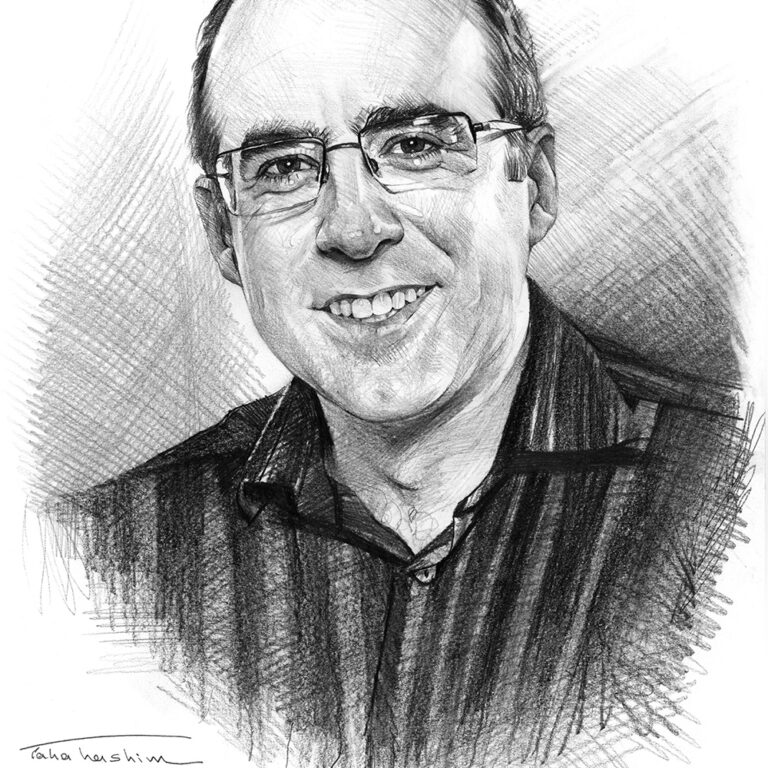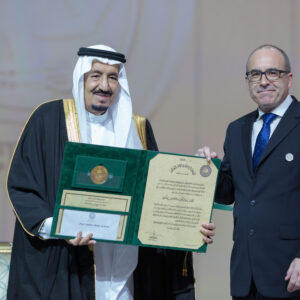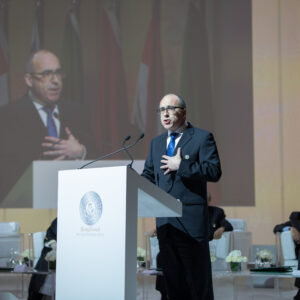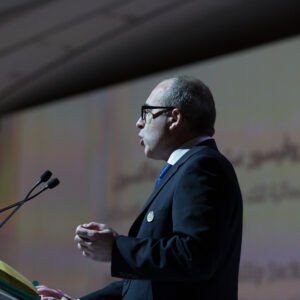

Professor Stephen Philip Jackson
King Faisal Prize in Science 2016 Laureate
Topic: "Biology"
It is humbling to recognize that my basic academic research has led to a drug that is enhancing the lives of cancer sufferers

Stephen Jackson obtained his B.Sc. in Biochemistry from the University of Leeds in 1983, and completed his Ph.D. research on yeast RNA splicing at the Imperial College of Science and Technology and the University of Edinburgh. Thereafter, he carried out post-doctoral research on the regulation of transcription at the University of California, Berkeley. Upon his return to the U.K. in 1991, he was appointed as a Junior Group Leader at the Gurdon Institute (formally known as Wellcome CRC Institute) and became Senior Group Leader and Fellow of St. John’s College at Cambridge University in 1995. He was also appointed as Fredrick James Quick Professor of Biology at the Department of Zoology from 1995 to 2009, then Fredrick James Quick and Cancer Research U.K. Professor of Biology at the Department of Biochemistry at Cambridge University from 2009. He is currently the Head of the Cancer Research U.K. Laboratories, and the Wellcome Trust and Cancer Research U.K. Gurdon Institute.
Professor Jackson’s research focuses primarily on understanding how cells detect and repair DNA damage. Towards this objective, his laboratory uses a broad range of techniques and approaches to obtain a deeper insight of the cellular pathways that will yield a better understanding of the diseases that can arise when such pathways are lost e.g., hereditary and sporadic cancer, neurodegenerative disorders, developmental defects, immune deficiencies, infertility and premature aging, and will work on new treatment strategies for these diseases. Professor Jackson is a prolific author, with many of his publications appearing in prestigious journals. He is credited for his innovative approach towards rendering his findings into tangible therapeutic products for cancer treatment. In 1997, he founded KuDOS Pharmaceuticals, a drug discovery and drug-development company which seeks to develop new treatments for cancer based on knowledge of cellular DNA damage response pathways. The company was acquired by AstraZeneca in 2005. In 2011, he founded MISSION Therapeutics to develop drugs and improve management of life-threatening diseases, particularly cancer.
Professor Jackson’s outstanding contributions towards understanding DNA repair and DNA damage response signaling pathways have earned him many awards including the Biochemical Society Glaxo Smith Award (2008), the title of BBSRC Innovator of the Year (2009) and the Ganga A. and Ch. Van Hock Prize (2015). He is also a Member of the Biochemical Society, the Cambridge Philosophical Society, and the European Molecular Biology Organization (EMBO). He is also a Fellow of the Royal Society, and a member of numerous national and international scientific committees and advisory boards in his field of specialization.
This biography was written in the year the prize was awarded.
He co-founded Adrestia Therapeutics in 2018.




